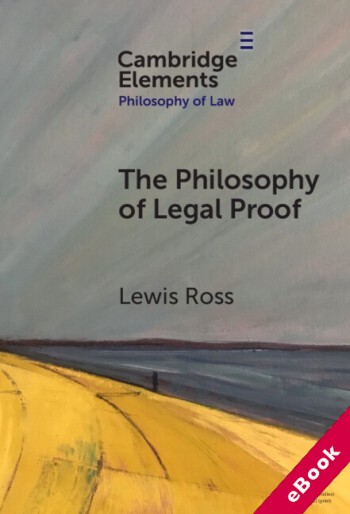
The device(s) you use to access the eBook content must be authorized with an Adobe ID before you download the product otherwise it will fail to register correctly.
For further information see https://www.wildy.com/ebook-formats
Once the order is confirmed an automated e-mail will be sent to you to allow you to download the eBook.
All eBooks are supplied firm sale and cannot be returned. If you believe there is a fault with your eBook then contact us on ebooks@wildy.com and we will help in resolving the issue. This does not affect your statutory rights.
Criminal courts make decisions that can remove the liberty and even life of those accused. Civil trials can cause the bankruptcy of companies employing thousands of people, asylum seekers being deported, or children being placed into state care. Selecting the right standards when deciding legal cases is of utmost importance in giving those affected a fair deal.
This Element is an introduction to the philosophy of legal proof. It is organised around five questions. First, it introduces the standards of proof and considers what justifies them. Second, it discusses whether we should use different standards in different cases. Third, it asks whether trials should end only in binary outcomes or use more fine-grained or precise verdicts. Fourth, it considers whether proof is simply about probability, concentrating on the famous 'Proof Paradox'. Finally, it examines who should be trusted with deciding trials, focusing on the jury system.